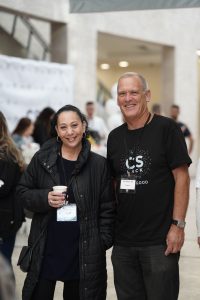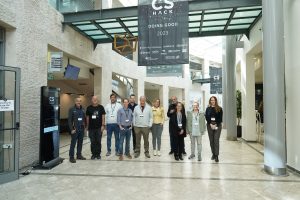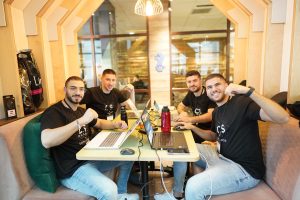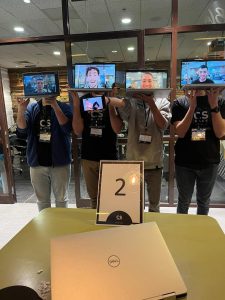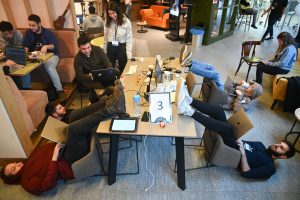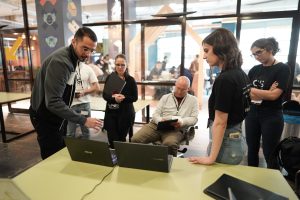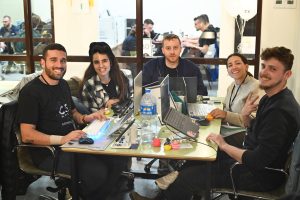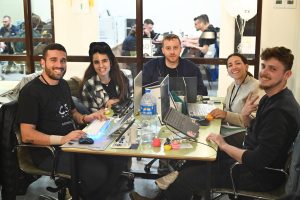Better Hospital Experience for Patients & Personnel
Unique Technion hackathon: Students seek to improve quality of life of hospitalized children; tackle improving treatment and reducing violence against personnel
The Doing Good hackathon concluded recently at the Technion – Israel Institute of Technology’s Henry and Marilyn Taub Faculty of Computer Science. In the course of the hackathon, students developed technological solutions for social challenges. This year, the hackathon focused on improving the quality of life for children in hospitals and it was conducted in close collaboration with the Ruth Rappaport Children’s Hospital of the Rambam Health Care Campus and with Prof. Daniella Magen, Director of the Pediatrics Division and the Pediatrics Nephrology Institute at Rambam.
The ‘ProTechTor’ team won first place, having developed an automated alert system for events of violence against medical personnel. The team included B.Sc. students Gil Litvin and Edo Cohen, and M.Sc. students Nadav Rubinstein and Idan Levi.

The ProTechTor student team, who won first place, with Faculty Dean Prof. Danny Raz and Aharon Aharon
Having learned from medical personnel about the limitations of distress buttons in hospitals, including their inaccessibility and the aversion towards using them, ‘ProTechTor’ invented an automatic AI-based system that provides alerts during incidents involving violence or potential violence. According to Litvin, “the system is based on video feeds and separates the sound from the images. The sound is analyzed according to its intensity, content, and emotional charge (fear and anger) and the images are analyzed according to the degree of violence they contain. Artificial intelligence then enables the system to provide information about each scene in a traffic light format – devoid of violence (green), potential for violence (yellow) or contains actual violence (red). An agreed code word can be added to the system and can be used by the medical personnel in the event of violence or potential violence.”
Second place went to students who developed a medical chatbot. A team that developed an efficient communications interface between patients and the nursing staff came in third. The concept was devised by one of the students who had been hospitalized as a child in the oncology department. The Audience’s Favorite category was won by a team that invented an application for physical therapy.
Prof. Danny Raz, Dean of the Henry and Marilyn Taub Faculty of Computer Science, told the participants that, “this hackathon is special – its purpose is to create something that will contribute to the community and that represents computers in the service of humanity (#CS4people). People look at high-tech and don’t understand how it affects them. It’s important that we be part of the community. Together we can make a better society.”
Prof. Daniella Magen said: “The world of medicine is marching forward thanks to advanced technology and out-of-the-box thinking, but the force that motivates development in the field of medicine is the aspiration to improve humanity and alleviate suffering. Working together with our creative partners at the Technion’s Faculty of Computer Science is a wonderful opportunity to strengthen the ties between medicine and innovation, which is likely to generate amazing initiatives that can improve the quality of life for the sick children we treat.”
Approximately 130 students took part in the hackathon. They were supervised and assisted by researchers and engineers from the Technion and from the industry, as well as by doctors and members of the nursing staff, who helped them get their solutions to the finishing line with real proofs of feasibility. The challenges were presented by Rambam staff based on actual problems that exist in the hospital: patients’ and medical personnel’s waiting times, pain level monitoring in children, and various problems related to transferring patients from the hospital back to their homes.
The hackathon was organized by four students from the Taub Faculty of Computer Science: Benny Mosheyev, Shelly Golan, Mor Ventura and Michael Toker.





